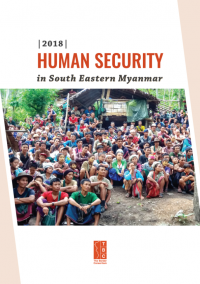Human Security Fragile in South Eastern Burma/Myanmar According to New Research Findings
November 15, 2018
On 14 November 2018, The Border Consortium (TBC), which has been working with refugees from Burma/Myanmar since 1984, announced the launch of a research publication on human security in Southeastern Burma/Myanmar. This research shows at least 162,000 civilians remain internally displaced, while assessments found that 17 percent of children in communities affected by conflict are acutely malnourished.
This research has been prepared by TBC, who collaborated with sixteen civil society organizations including the Human Rights Foundation of Monland. The main purpose of this research was to compile food security assessments, internal displacement estimates, civil society perspectives, and refugee returnees’ experiences of resettlement in southeastern parts of the country.
“The peace process has not begun to address the causes of displacement“, reflected Ms Thompson.
Analysis from civil society organizations underscores the importance of building on local capacities in designing policy and delivering services to respond to this protracted emergency. Local civil society organizations have the trust of conflict-affected communities after providing life-saving support for decades. As Ms Thompson notes, “If we want to leave no one behind, then ethnic service providers need to be embraced rather than marginalized during this interim period between war and peace”.
Comments
Got something to say?
You must be logged in to post a comment.




















































